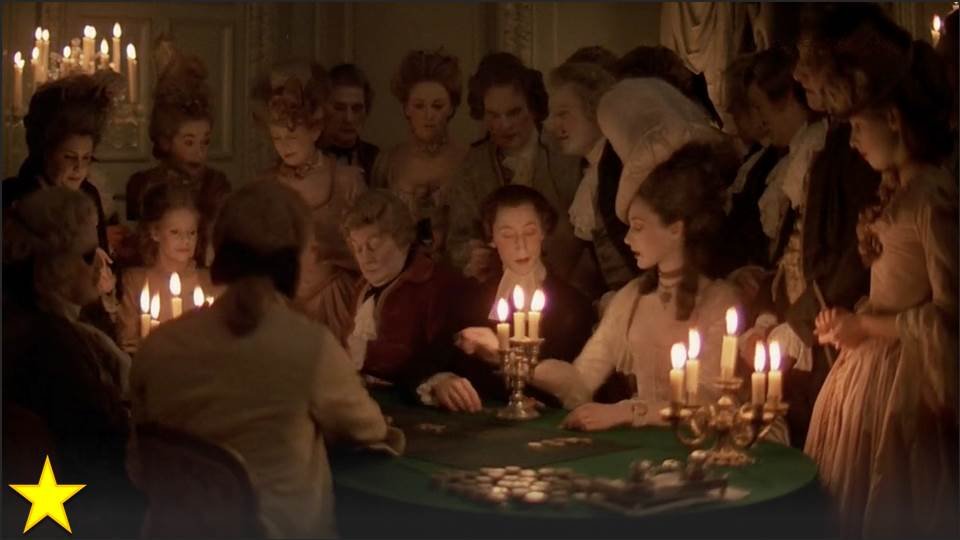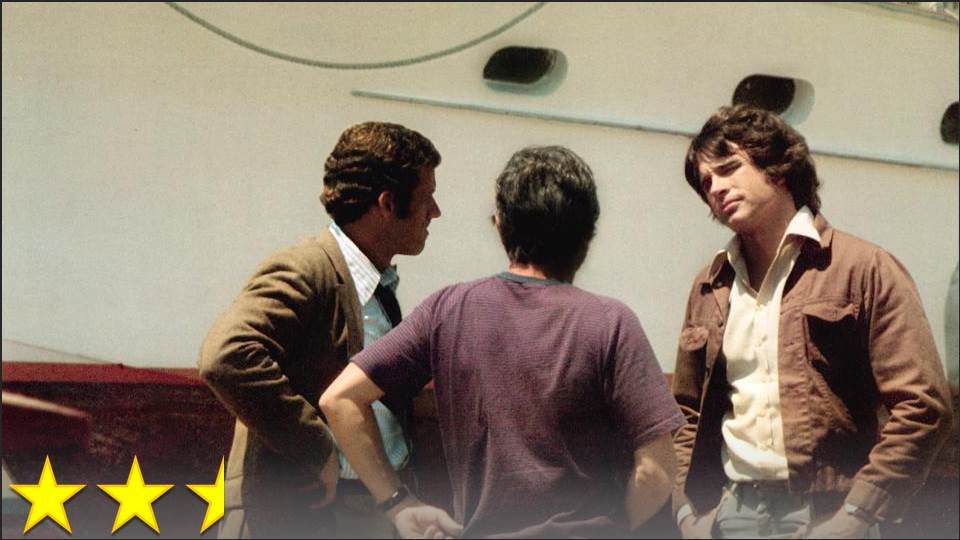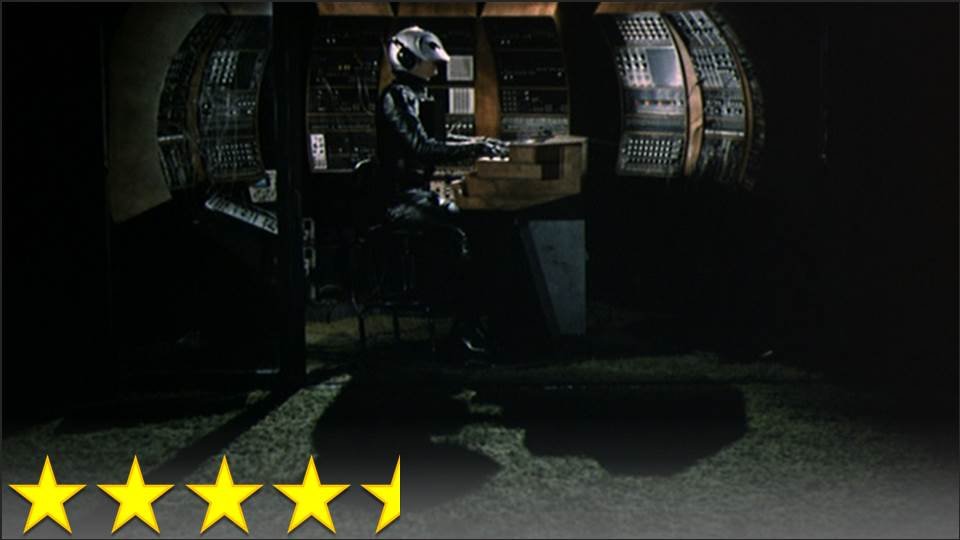In my recent review of Stanley Kubrick’s Paths of Glory, I explained that I finally understood just how impressive a director Kubrick was, and had come to respect him much more than I had after seeing 2001. While 2001 was agony, I have found that I enjoy some of his other films, such as Dr. Strangelove and Full Metal Jacket, and Killer’s Kiss isn’t all that bad either. Better yet, if I found 2001 to be so devastatingly lacking in both emotional satisfaction and intellectual satisfaction, Paths of Glory has made up for the emotional lack in spades, and A Clockwork Orange has done the same for the intellectual lack, with both of these films being brilliant, powerful masterpieces that redeemed him in my eyes. Unfortunately, just as the Israelites of the Old Testament made right with God just before they wandered back into their sinful ways, I was bound to find another Kubrick film that brought his score back down into the negative. This film is Barry Lyndon.
Conceptually, this film is essentially a remake of 2001, only this time it’s set in the world of old paintings instead of the future. Visually, it is absolutely stunning, and his technical innovating that allowed him to create such a fascinating visual experience is evidence of the man’s genius. Once again, however, Kubrick shows his taste for making human characters less and less human in a way that does not serve his film well. His characters are, as one would expect after 2001, mechanical and uninteresting, which I think it is safe to say was his goal. Also like 2001, the run-time is far too long for a story so incoherent and pointless, and there is really only one scene in the film that is particularly good (and emotionally captivating) as far as the characters are concerned. Naturally, these reasons I give for hating the film are, as I expected, exactly the same reasons that others love it.
Clearly, making me dislike the characters is the point, and in a way, making it boring is part of the point as well, which many professional critics have conceded. “[F]or all its dry wit and visual splendor,” wrote Time Out in a recent review, “this 1975 adaptation of William Makepeace Thackeray’s novel might be the great director’s least satisfying, most disconcerting film – and that’s what makes it extraordinary.” The film is considered fascinating because Kubrick uses the fact that the character has nothing that any sensible person would recognize as a “personality” (for most of the film) as his social criticism on how pathetic humans are. “Barry Lyndon isn’t a great success, and it’s not a great entertainment,” Roger Ebert adds in one of his two reviews of the film, “but it’s a great example of directorial vision: Kubrick saying he’s going to make this material function as an illustration of the way he sees the world.” I can understand and appreciate this effort, and I think I even strongly agree with Kubrick’s thesis – people really are pathetic machines with an utter lack of any devotion to living a good, reasonable life, and are hopelessly seeking a nonexistent state of total happiness; but even if I agree with his thesis, and even if I am impressed with what he’s done to achieve his goal for the film, I do not think that his goal for the film (making the audience annoyed, uncomfortable, and bored for three hours) is either a good goal for a movie or an effective goal for the purpose of supporting his thesis.
The fact of the matter is that critics do not really want what they say they want. Their desire for a blunt critique of how pathetic humans are and how meaningless their lives are, there is a well-known technique for doing that effectively while keeping the audience entertained. It’s called comedy. Comedy, when done properly, shows all intentions to be selfish, all ideas to be myopic, all peoples to be primitive, all societal conventions to be fragile, all masculinity to be non-existent, all propriety to be a joke, all nations to be powerless, all genius to be craziness, all traditions to be childish, all pride to be arrogant, wars to be inconsequential, all actions to be futile, and all humans to be stupid as swine. Yet somehow this is of no interest to critics, who are uncomfortable awarding films of this nature when they could instead award the dramas, which always pretend the feelings of one good individual can make all the difference in the world and which relentlessly hammer in the message that some people are simply bad people because they do bad things because they are bad people because they do bad things. (For more on this subject, I recommend Mladen Dolar’s essay “To Be or Not to Be? No, Thank You,” which explains this concept far better than I.) Dramas are allowed to be fatalistic or libertarian in philosophy, but the realm of determinism has always belonged to the comedy. This is why the most popular kind of film right now in critical, academic, and pseudo-intellectual circles seems to be, from what I’ve seen recently, the dramedy.
The modern dramedy attempts to make a drama film while borrowing the element of “pathetic determinism” from comedy. This offers the intellectual criticism of comedy with the sense of emotional weight and significance brought to a subject by drama. This, I argue, presents the sort of film that Barry Lyndon is – it is a predecessor to the contemporary dramedy in that it presents hopelessly pathetic, semi-mechanical humans (like characters out of a Coen brothers film) in the guise of drama, giving critics everything they say they want. I argue, however, that what they want may in fact be simply comedy: after all, it seems as though it has been much easier for a comedy to get a high score on Rotten Tomatoes recently than it has been for the dramas. I think that drama is not what they want, and it is not even necessarily what they say they want – it’s what they say they say they want. The numbers show that what they want is comedy, but have been trained by tradition to think they must want drama if they’re smart.
What critics (and perhaps most other people) truly want, or so it seems to me, is the chance to seem thoughtful while experiencing the thoughtless. This is what many dramedies do, but it is also what I think many practices in the world of “mindfulness” do. In short, people like to reach a “zen” state of hypnosis or “zoning out” in which they feel like they’re having an experience that is somehow elevated to a higher level of human consciousness. This is why critics have described it as “hypnotic” – it has a mesmerizing quality, and that is something that does not particularly appeal to me, but it appeals to a great many individuals who want to seem intelligent, wise, and/or spiritual. A hypnotic experience is not the same as experiencing genius, insight, or elevation. The problem is that people associate the significance and meaningfulness of something with emotion, and so we feel like something but be especially meaningful if it gives us a special, “higher” kind of emotional experience. For this reason, an emotionally distant comedy that’s very intellectual is often not as desirable to critics or audiences as a drama on the same subject would be or as a hypnotic film would be, simply because it is an emotional experience that makes us feel as though we are watching something important.
While I recognize that this review probably comes across to many readers as an arrogant, ignorant, and even sanctimonious display of hubris, I see no other way to write this review. Think about it: if I am to maintain my view that one’s assessment of a film is not merely a subjective feeling, as anyone who appreciates the function of the film critics ought to understand, but I am also to argue that I do not support the enormous (and almost unanimous) critical acclaim that this film has come to receive, I am logically required to explain some sort of reasoning for how it’s possible that I am right and all the professional critics are wrong. I regrettably have no other choice – without this explanation of my views, anyone could compare the number of stars I have given this film to the number that one finds in a Google search and immediately deem me a thoughtless fool. All of my above writing on the “critics’ delusion” is not to be taken as dogmatic facts from a know-it-all, but as a working thesis I have for what the many worshipers of the films I hate might be missing. At the same time, I obviously don’t mind if other people like films that I don’t, so long as I am not considered thoughtless for hating a film that the “cinema elect” has decided is perfect. I do believe that a large amount of diversity in tastes is healthy for a culture, but this notion that the dramatic and the hypnotic are (by default) artwork of a higher caliber than fun, entertaining artwork is one that I must militantly oppose.


